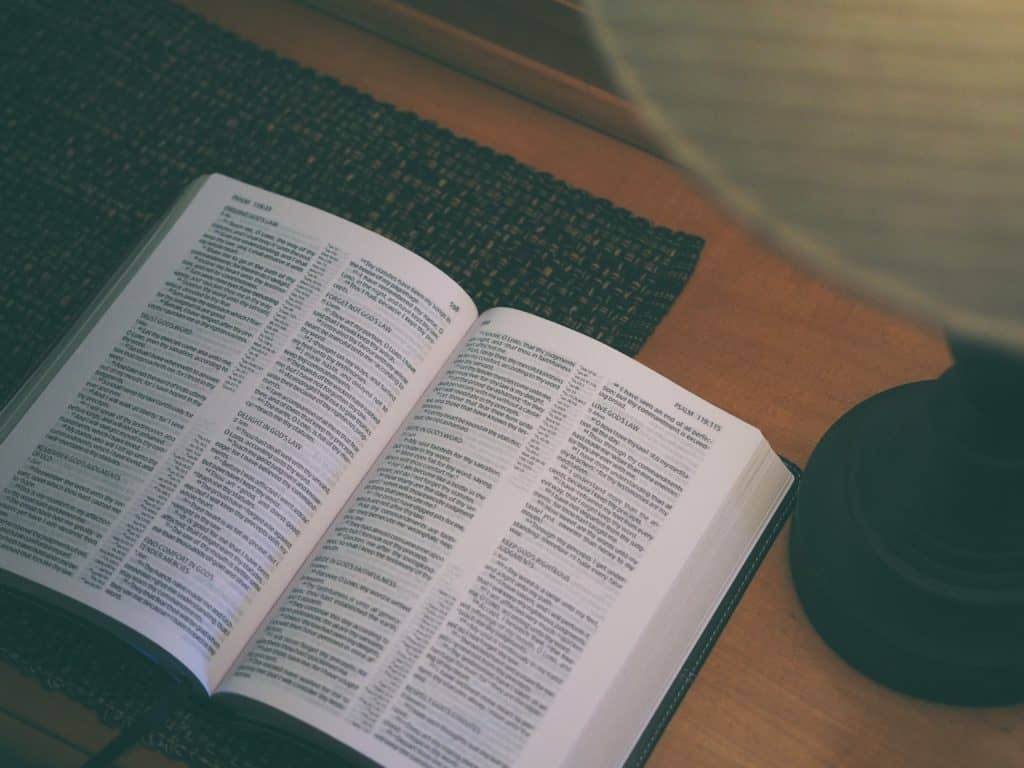The Bible is a library of some of the religious literature of ancient Israel and of the Christian Church. Like any library it contains a great variety of literary forms.
There is history, saga, tales of tribal heroes, and legends about the beginnings of the world. There are poetry, drama, parables, allegory, prophecy, maxims, proverbs, and love stories.
The Gospels are a unique literary form of their own. We have letters and apocalyptic writings peculiar to the times when they were written. All the literary forms have rules for interpretation. The Biblical scholars have provided those rules for us so that we can get the true meaning from the text. The Bible is not self-explanatory!
The Vatican II Council taught that “the books of Scripture must be acknowledged as teaching solidly, faithfully, and without error the truth that God wanted put into the sacred writings, for the sake of our salvation.”
The blanket coverage of the inerrancy of Scripture has been removed. It is now limited to only those things pertaining to our salvation. Baronius, an ancient scholar said that the Bible does not tell us how the heavens go, but rather how to go to heaven.
Bible fundamentalism
One of the pitfalls in Bible study is fundamentalism which interprets the Bible to the letter. Eve ate the forbidden fruit. Noah built an ark. Jonah was in the belly of the fish for three days. According to them the end of the world is near.
There are those today who want the first two chapters of Genesis included in the public school curriculum under the title of creationism.
Most scientists are agreed that the human species evolved from a lower form of life. In 1996 John Paul II said “the evidence now clearly supports the idea that the human species developed along an evolutionary line. At the same time he said that this leaves room for God the creator to breathe spiritual life ‘ the soul ‘ into each person.”
The greatest problem for some fundamentalists is that they have locked themselves into a culture, a level of knowledge and a concept of morality that is antiquated and totally out of sync with the advances of modern civilization. They treat the Bible as a science book rather than something that guides their faith.
We also have other extreme (non-Roman Catholic scholars) called minimalists who consider the history of Israel to be fiction, that there never was a Solomon’s temple, and that the Gospels are the story of a misguided wonder worker who went to his death on a cross. This is the other extreme.
Our Catholic scholars are on the cutting edge of Biblical study today and are highly regarded by their peers of other faiths. They present a well-balanced approach to Scripture. We therefore must be open to their teachings and the authority of the Church.
The Apostolic Church
It is important to remember that the emerging Church only had the Scripture of Israel for its Bible. As the Church grew the Christian writings were produced. It began formulating rules (Acts 15), its liturgy (1 Cor. 11: 17-34), and sacramental system (Rom. 6: 3-4).
The New Testament was slowly formed with Paul’s letters first. Then the four Gospels and other writings. However there were many other Gospels, letters and writings in circulation during the early centuries. The canon wasn’t finally established until the 5th century when the 27 books were finally selected (Jerome’s Vulgate). The Bible came from the Church, not the Church from the Bible.
What Bible shall I use?
The Catholic Study Bible (NAB) Oxford Press It is the best in Catholic scholarship containing reading guides, reference articles, a history of Israel, lectionary, maps, archaeological discoveries, commentary and other study aids. New American Bible (NAB) 1987 New Jerusalem Bible (NJB) 1985 New Revised Standard Edition with Deuterocanonical Books (RC Edition)
All editions listed above have excellent cross references, maps and explanatory footnotes.
Caution: Other than not having all the books approved by the Church, some Protestant Bibles have footnotes that are contrary to the Church’s teachings.
Bible Study Aids
Bible dictionaries provide information arranged alphabetically about persons, places, things, and themes. Also contains historical, geographical, archeological, and lingual material (McKenzie Bible Dictionary and Harper Bible Dictionary).
A concordance presents an alphabetical list of all words with the verse in which it is found. Assists in locating passages that one has heard quoted (Crudens, Strong).
An atlas contains maps covering each historical era with a commentary and an archeological summary (Oxford and others).
A commentary gives an interpretation of the Bible verse by verse. Also provides information on related subjects (Jerome Bible Commentary and Collegeville Bible Commentary).

Evolution is false .. You cannot add new code to the DNA of an organism… Mutations happen all the time but mutations do not change the dna code of that creature, and there is no mechanism in DNA to make such a change if it were possible , WHICH IT IS NOT !
POPE JOHN PAUL II SPOKE POMPOUS WORDS AGAINST THE MOST HIGH WHEN HE STATED THAT MAN EVOLVED FROM SLUDGE !!!! HOW DARE HE !